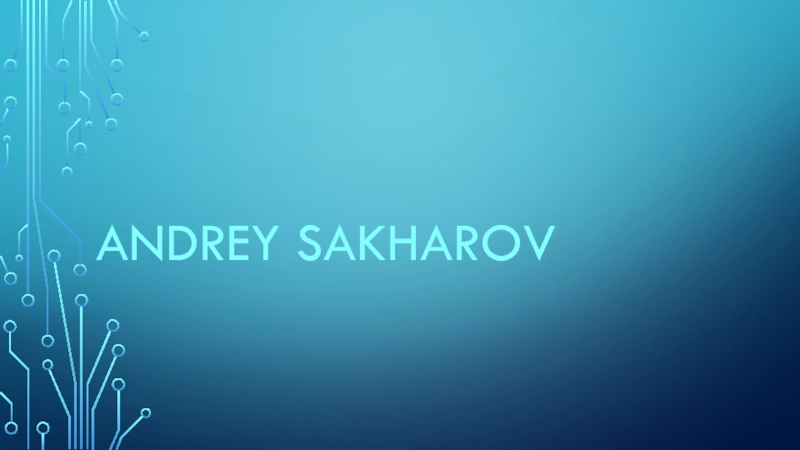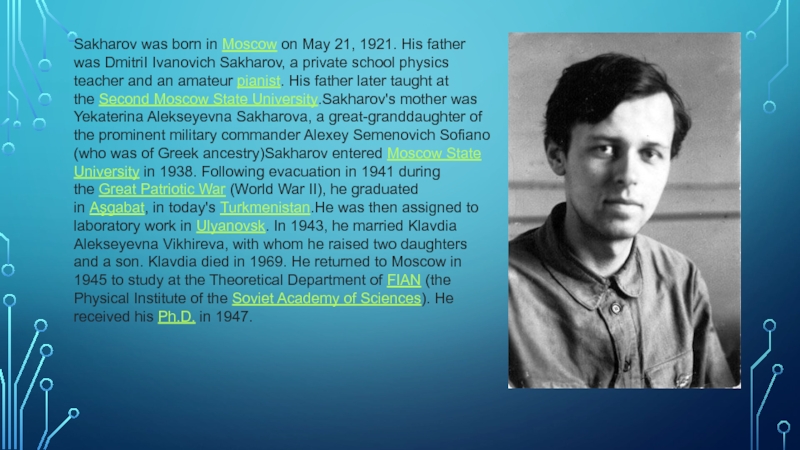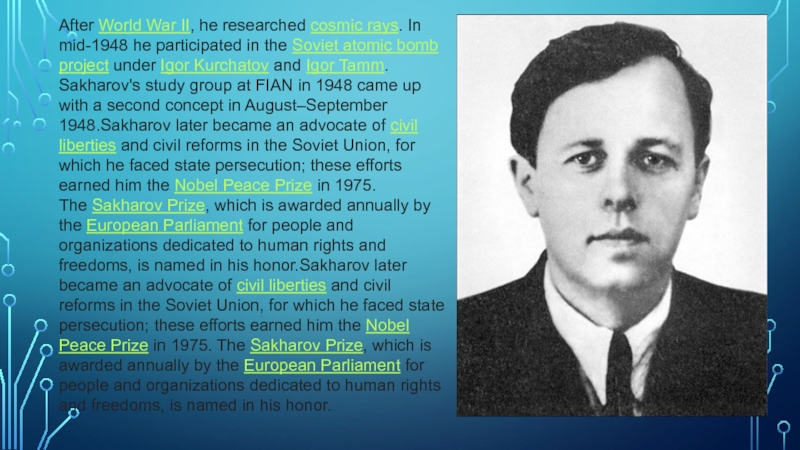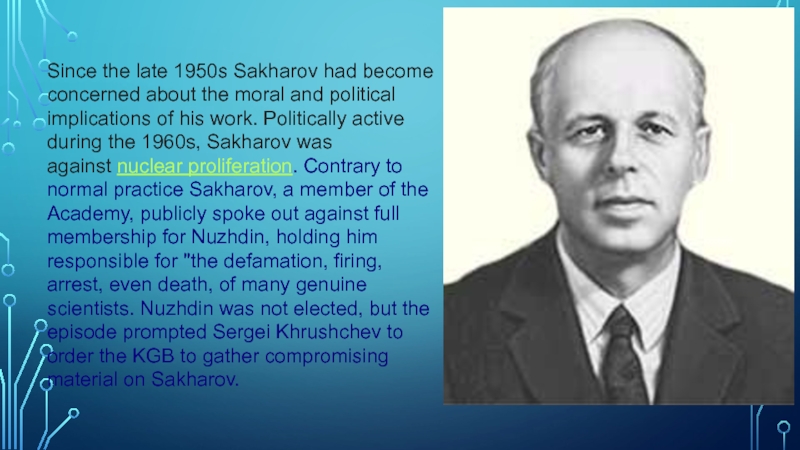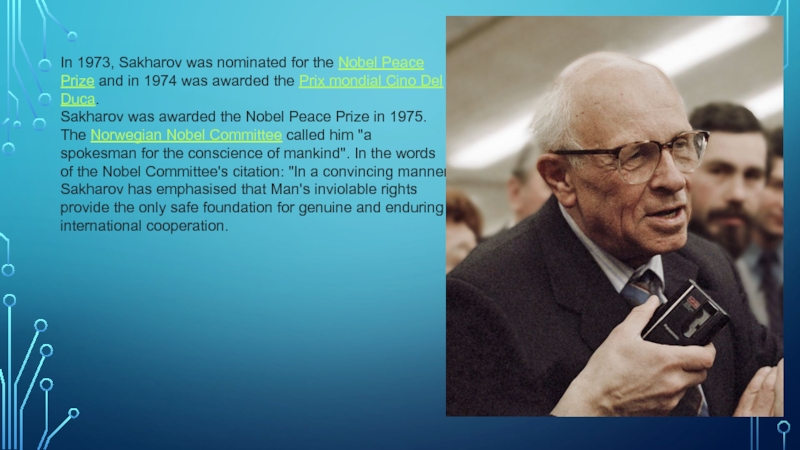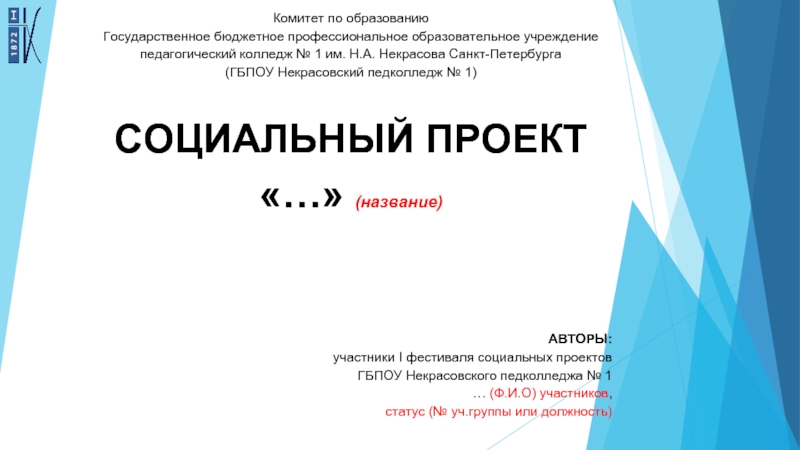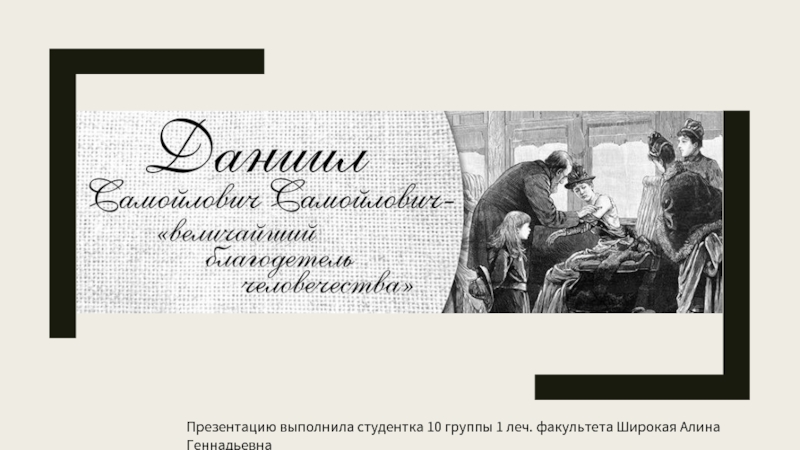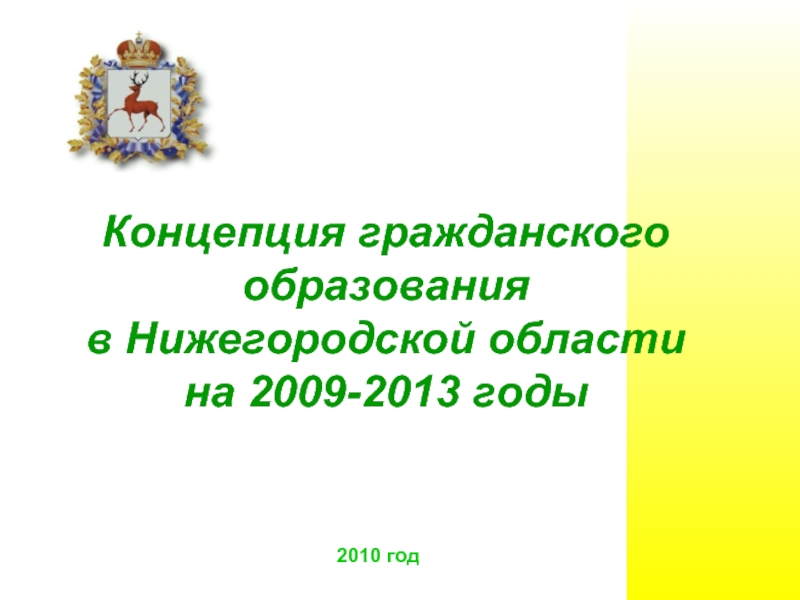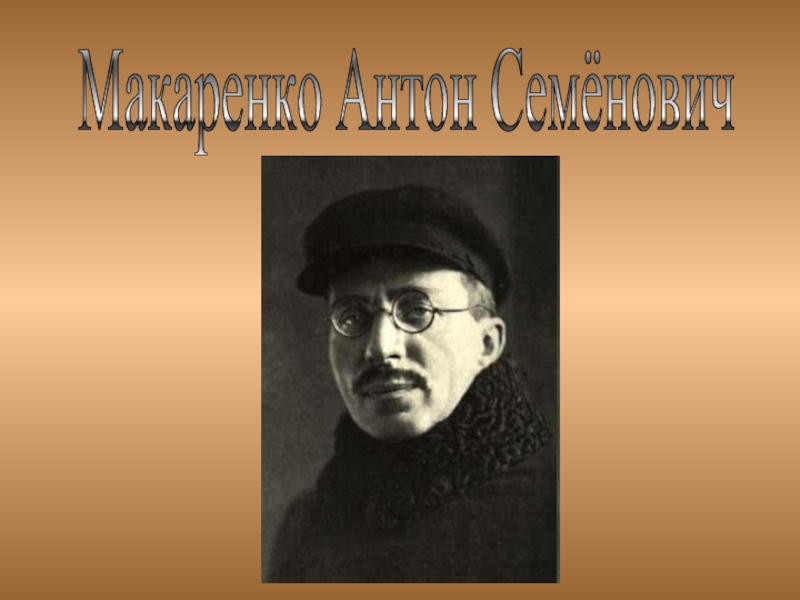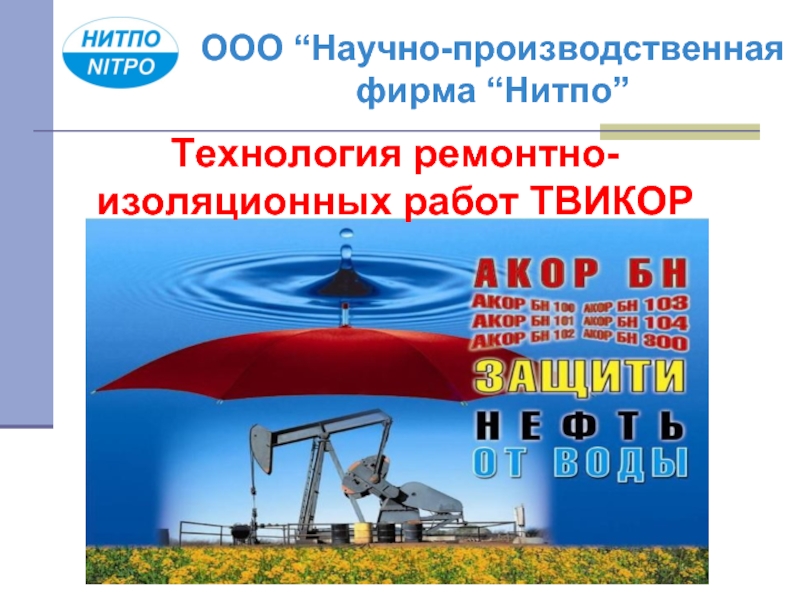- Главная
- Разное
- Дизайн
- Бизнес и предпринимательство
- Аналитика
- Образование
- Развлечения
- Красота и здоровье
- Финансы
- Государство
- Путешествия
- Спорт
- Недвижимость
- Армия
- Графика
- Культурология
- Еда и кулинария
- Лингвистика
- Английский язык
- Астрономия
- Алгебра
- Биология
- География
- Детские презентации
- Информатика
- История
- Литература
- Маркетинг
- Математика
- Медицина
- Менеджмент
- Музыка
- МХК
- Немецкий язык
- ОБЖ
- Обществознание
- Окружающий мир
- Педагогика
- Русский язык
- Технология
- Физика
- Философия
- Химия
- Шаблоны, картинки для презентаций
- Экология
- Экономика
- Юриспруденция
Andrey Sakharov презентация
Содержание
Слайд 2Sakharov was born in Moscow on May 21, 1921. His father was DmitriI
Ivanovich Sakharov, a private school physics teacher and an amateur pianist. His father later taught at the Second Moscow State University.Sakharov's mother was Yekaterina Alekseyevna Sakharova, a great-granddaughter of the prominent military commander Alexey Semenovich Sofiano (who was of Greek ancestry)Sakharov entered Moscow State University in 1938. Following evacuation in 1941 during the Great Patriotic War (World War II), he graduated in Aşgabat, in today's Turkmenistan.He was then assigned to laboratory work in Ulyanovsk. In 1943, he married Klavdia Alekseyevna Vikhireva, with whom he raised two daughters and a son. Klavdia died in 1969. He returned to Moscow in 1945 to study at the Theoretical Department of FIAN (the Physical Institute of the Soviet Academy of Sciences). He received his Ph.D. in 1947.
Слайд 3After World War II, he researched cosmic rays. In mid-1948 he participated in
the Soviet atomic bomb project under Igor Kurchatov and Igor Tamm. Sakharov's study group at FIAN in 1948 came up with a second concept in August–September 1948.Sakharov later became an advocate of civil liberties and civil reforms in the Soviet Union, for which he faced state persecution; these efforts earned him the Nobel Peace Prize in 1975. The Sakharov Prize, which is awarded annually by the European Parliament for people and organizations dedicated to human rights and freedoms, is named in his honor.Sakharov later became an advocate of civil liberties and civil reforms in the Soviet Union, for which he faced state persecution; these efforts earned him the Nobel Peace Prize in 1975. The Sakharov Prize, which is awarded annually by the European Parliament for people and organizations dedicated to human rights and freedoms, is named in his honor.
Слайд 4Since the late 1950s Sakharov had become concerned about the moral
and political implications of his work. Politically active during the 1960s, Sakharov was against nuclear proliferation. Contrary to normal practice Sakharov, a member of the Academy, publicly spoke out against full membership for Nuzhdin, holding him responsible for "the defamation, firing, arrest, even death, of many genuine scientists. Nuzhdin was not elected, but the episode prompted Sergei Khrushchev to order the KGB to gather compromising material on Sakharov.
Слайд 5In 1973, Sakharov was nominated for the Nobel Peace Prize and in 1974
was awarded the Prix mondial Cino Del Duca.
Sakharov was awarded the Nobel Peace Prize in 1975. The Norwegian Nobel Committee called him "a spokesman for the conscience of mankind". In the words of the Nobel Committee's citation: "In a convincing manner Sakharov has emphasised that Man's inviolable rights provide the only safe foundation for genuine and enduring international cooperation.
Sakharov was awarded the Nobel Peace Prize in 1975. The Norwegian Nobel Committee called him "a spokesman for the conscience of mankind". In the words of the Nobel Committee's citation: "In a convincing manner Sakharov has emphasised that Man's inviolable rights provide the only safe foundation for genuine and enduring international cooperation.
